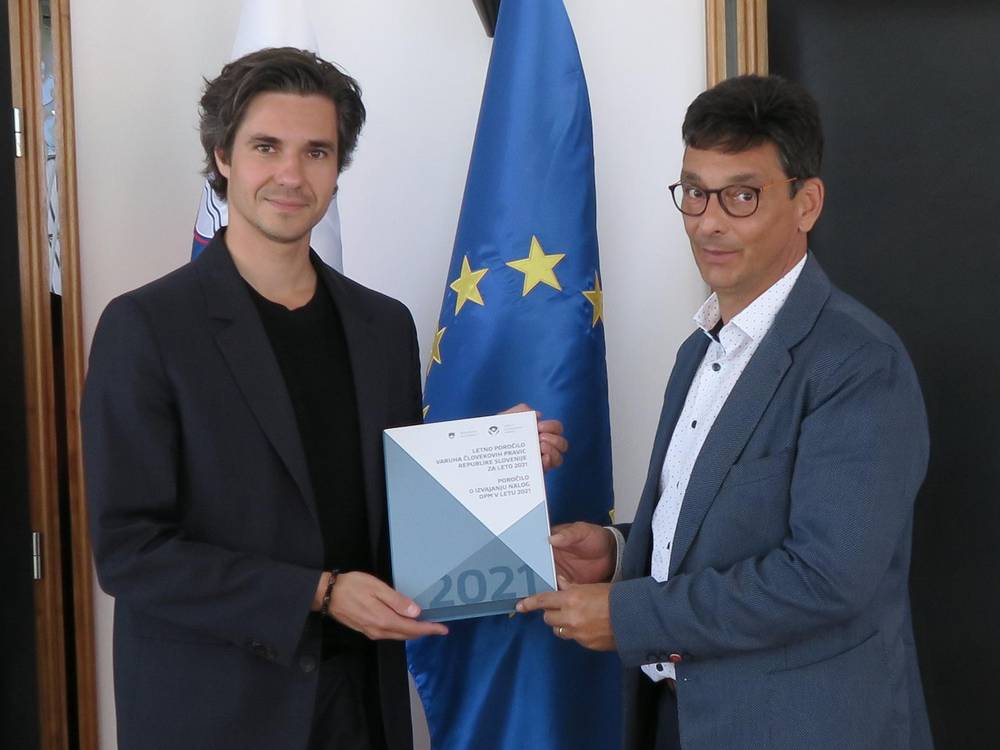The Human Rights Ombudsman, Peter Svetina, invited the Minister of Labour, Family, Social Affairs and Equal Opportunities, Luka Mesec, to the Ombudsman’s premises and presented him with the Annual Report for 2021. During the conversation, the Ombudsman, the Minister and the State Secretary of the Ministry, Simon Maljevac considered a range of topics that fall within the very broad scope of the Ministry's work.
"In 2021 alone, among the 276 identified rights violations, we have listed 63 violations that will have to be remedied by the Ministry, including through appropriate inter-ministerial cooperation," the Ombudsman informed the Minister and the State Secretary. They discussed the care of a number of vulnerable groups, specifically mentioning the need for systemic care for people with special needs, long-term care and personal assistance, as well as employment and housing issues.
The Ombudsman, Peter Svetina, reiterated that deinstitutionalisation is often misunderstood in Slovenia. "Deinstitutionalisation requires the implementation of structural changes, which must be about creating additional services and not just about closing institutions," he stressed. He called on the Minister to prepare, in dialogue with civil society stakeholders, a comprehensive deinstitutionalisation strategy that takes into account international standards on respect for the rights of persons with disabilities. A deinstitutionalisation strategy for the elderly must be adopted alongside deinstitutionalisation under the Convention on the Rights of Persons with Disabilities, the Ombudsman believes, and reiterates this in his annual report for 2021.
He also informed the Minister and the State Secretary that the Ombudsman's institution is working more closely on the accessibility of the environment, public transport and communications for persons with disabilities. “When we looked into the alleged unresponsiveness of the Building Inspectorate to reports of architectural barriers, we found systemic irregularities in the Law on Equalisation of Opportunities for Persons with Disabilities," Svetina stressed.
The Ombudsman also highlighted systemic shortcomings in the area of the employed and unemployed and pointed to formal illogicalities in the Cross-Border Provision of Services Act, which prevent (effective) supervision of companies posting workers abroad. The Ombudsman and the Minister agreed on the urgent need to address the issue of precarious work, as well as housing, as these are the foundations for the realisation of other human rights.
"Everyone deserves to work in decent working conditions, in a healthy and safe environment, and to be paid fairly for it. The state must send a clear message to those who violate workers' rights that their actions are not worth it. It must set up a fast and well-functioning system of control and punishment of violators, which is why inter-ministerial cooperation will be essential," the Ombudsman clarified.

